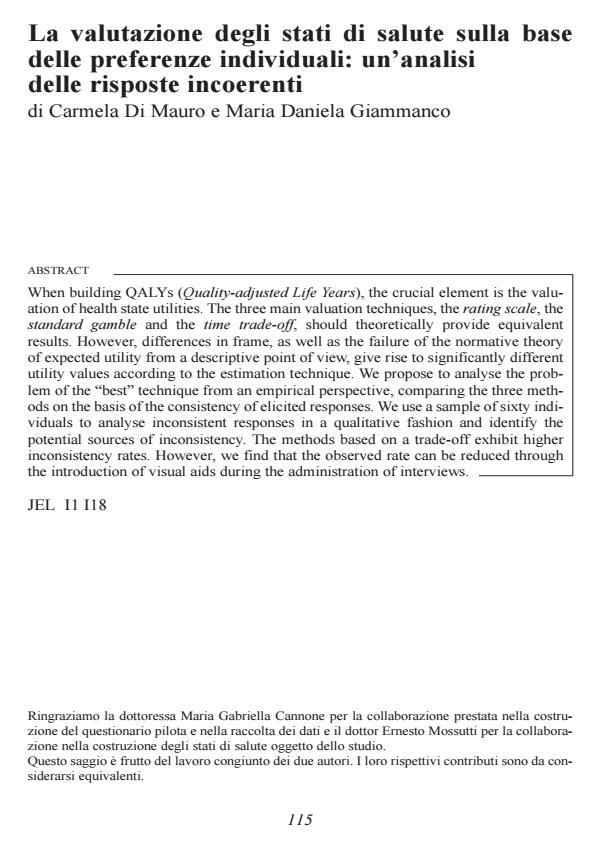La valutazione degli stati di salute sulla base delle preferenze individuali: un'analisi delle risposte incoerenti
Titolo Rivista ECONOMIA PUBBLICA
Autori/Curatori Carmela Di Mauro, Maria Daniela Giammanco
Anno di pubblicazione 2004 Fascicolo 2004/5
Lingua Italiano Numero pagine 30 P. Dimensione file 174 KB
DOI
Il DOI è il codice a barre della proprietà intellettuale: per saperne di più
clicca qui
Qui sotto puoi vedere in anteprima la prima pagina di questo articolo.
Se questo articolo ti interessa, lo puoi acquistare (e scaricare in formato pdf) seguendo le facili indicazioni per acquistare il download credit. Acquista Download Credits per scaricare questo Articolo in formato PDF

FrancoAngeli è membro della Publishers International Linking Association, Inc (PILA), associazione indipendente e non profit per facilitare (attraverso i servizi tecnologici implementati da CrossRef.org) l’accesso degli studiosi ai contenuti digitali nelle pubblicazioni professionali e scientifiche.
When building QALYs (Quality-adjusted Life Years), the crucial element is the valuation of health state utilities. The three main valuation techniques, the rating scale, the standard gamble and the time trade-off, should theoretically provide equivalent results. However, differences in frame, as well as the failure of the normative theory of expected utility from a descriptive point of view, give rise to significantly different utility values according to the estimation technique. We propose to analyse the problem of the best technique from an empirical perspective, comparing the three methods on the basis of the consistency of elicited responses. We use a sample of sixty individuals to analyse inconsistent responses in a qualitative fashion and identify the potential sources of inconsistency. The methods based on a trade-off exhibit higher inconsistency rates. However, we find that the observed rate can be reduced through the introduction of visual aids during the administration of interviews.
Carmela Di Mauro, Maria Daniela Giammanco, La valutazione degli stati di salute sulla base delle preferenze individuali: un'analisi delle risposte incoerenti in "ECONOMIA PUBBLICA " 5/2004, pp , DOI: